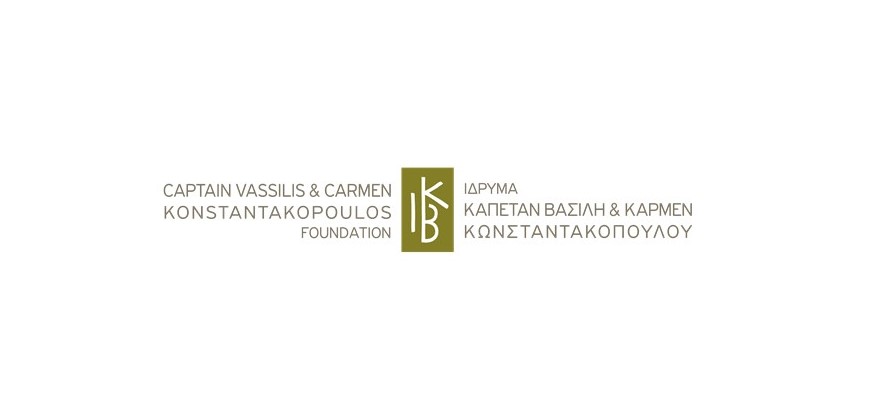
Interview: Captain Vassilis and Carmen Konstantakopoulos Foundation
The “Captain Vassilis and Carmen Konstantakopoulos” Foundation is a charitable non-profit private foundation, founded in 2011 to honor Captain Vassilis and Carmen Konstantakopoulos. Its aim is to establish Messinia as a model for sustainable development, by supporting and promoting related projects. The Foundation plans, manages and finances programs related to research, education and support of local structures in Messinia. It trades in a wide range of areas related to rural development, society, culture and the environment by developing partnerships with institutions and with bodies in those fields.
Mr. Xenophon Kappas, General Director, gives answers to HIGGS’s questions concerning the funding to Non-Profit Organizations.
1. The aim of the Foundation is to establish Messinia as a model for sustainable development by supporting and promoting related projects while it is active in areas related to rural development, society, culture and the environment. Are organizations that implement actions in the aforementioned fields out of Messinia eligible to apply for a grant?
Yes, of course, the Foundation has a national scope since 2016. We usually address the region of Messinia due to the fact that it meets all the requirements of a sustainable development model and we believe that by focusing specifically on one region, we will achieve better results. Concerning the agricultural region, but also cultural issues, we focus mainly on Messinia. However we expand our work and vision in other areas in Greece if they are related to our strategy. In the social sector, we expand our work in other regions as well, such as Attica, where we believe the economic crisis is more evident.
2. Do you provide grants only to those who have applied for one or do you also approach organizations that you believe they need support? If the second case applies, what are the sectors that you give priority to?
Due to our different strategies, we try to achieve specific goals in certain fields, therefore we also approach new organizations. In that case, we conduct a research in order to find which organizations deal effectively and in depth with the subject that concerns us. If we find organizations that have the same ideals with us and want to achieve the same goals, we approach them. Of course, we receive numerous applications, and then we communicate with the organizations, in order to see if they meet our criteria. Generally, for us, a donation is not only an economic help to the organization, but our active engagement at all stages of implementing and supporting a proposal.
3. In addition to the financial support you provide to your grantees, are there any other ways you offer support?
We believe that most of the Foundations provide support to organizations in various ways and they do not just give money to organizations. The question should be who is the beneficiary. All the Foundations aim to improve the conditions in specific sectors e.g. society, health, environment, culture, education etc. Therefore, if one helps a university, financially, in order for it to provide more education to farmers in the suburbs, the goal off the Foundation is not to give money, but to provide education. In that logic, the organization that receives our economic help is not our direct beneficiary but our partner who helps us to provide support to those in need.
4. How do you evaluate the work of an organization and its impact?
Evaluation is very important to us. There are two stages of evaluation. The first concerns the evaluation of the organization before it receives our grant, in order to see if it meets our criteria, and the second one concerns the evaluation of the project, during which we see if we have achieved our goal. The evaluation of an organization is always easier, in a sense that we evaluate the job of the other with more quantitative and measurable data. It has references, historical data, and achievements. We always try to have an overall picture of the way the organization works and of the final work it offers. Factors such as proper resource management, administrative capacity and know-how are always something we take into account. Concerning the evaluation of our own work, things become more difficult and more qualitative criteria are needed. We usually ask the ones that are benefited from our projects to evaluate them and we have also hired experienced external evaluators. Evaluation is a process in which we all continually evolve and improve.
5. Which ones do you think are the main training needs of Greek NGOs nowdays?
The needs of the organizations vary according to their legal form, objective as well as their experience. However, there are certainly some common elements and training needs. A key point that organizations need to improve is their strategy development. Many times, small organizations with no experience in the field, fail to adapt in a strategy. All this is understandable and it does not happen only to NGOs but also to business world. What is needed is familiarity with the process and for organizations to realize the significance of a good strategy. What is more, organization and administration of NGOs need also to get improved. Many organizations that do not have stable structures and trained executives, operate with an expiration date as at some point the person or team will stop working there.
6. What would you say that is the most important activity you are currently running?
Certainly all our activities are important but I would say that a challenge for us is the Center for Agri-Food Entrepreneurship in Messinia. It was a new and challenging project. The first stage includes educational seminars concerning agricultural production while the second one provides counseling services. Although the action has begun recently, since September 2016, its design and preparation started two years ago. The first year went well and now we are moving into the second phase of development and counseling. Innovative ideas have already been identified and we are in contact with the people who are ready to start. The program was originally designed by us and the American Farm School, but it has been embraced by all in the local community. The Technological Educational Institute of Peloponnese, the Municipality of Kalamata, and the Chamber of Messinia are some of the main institutions supporting the project. At the same time, we are in contact with other Institutions and bodies in order to strengthen this effort.
Please visit the website of Captain Vasilis & Carmen Konstantakopoulos Foundation here.
We are very grateful to Mr. Xenophon Kappas and the Captain Vasilis & Karmen Konstantakopoulos Foundation for this interview.

